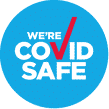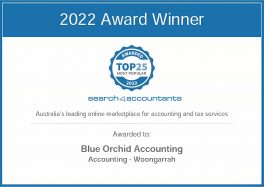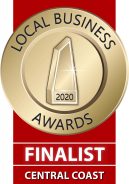If you are in the cleaning business and you are not making the most of these tax deductions for cleaners, then you are losing out on a heap of cash every year.
Whatever type of cleaner you are, we understand your job can be tough! After a hard day, the last thing you want to do is think about tax. However, if you do think about it every now and then and remember to take note of your work expenses throughout the year, you could well earn yourself back a nice little award at tax time.
Equipment costs = the bulk of tax deductions for cleaners
Equipment and tools are essential to do your job. You can generally claim the cost of purchase for vacuums, sprayers, polishers and more – they can all be listed as tax deductions for cleaners, as long as you paid for it yourself and it’s directly needed for your cleaning work.
The tools of your trade take a real beating so it’s good to know you can also claim the cost of maintaining and repairing equipment related to your cleaning work.
The costs of more disposable or fast turnover items like cloths, mops, buckets and dusters can all be added to your tax return as cleaner tax deductions in the tools and equipment section. And don’t forget carriers, boot dividers and other bits and pieces you use to make transporting your materials easier.
Examples of tax-deductible equipment under $300
- Cleaning chemicals
- Wash/bathroom products
- Small cleaning machines
- Parts and accessories
- Garbage bags
- Cloths and wipes
- Sponges and scourers
- Dusters
- Scrapers and blades
- Applicators
- Dust and cleaning mops
- Buckets and wringers
- Brooms and brushes
- Trolleys and carriers
- Batteries
- Carpet cleaning accessories
NOTE: You will need to claim depreciation on items costing more than $300, unless you are running your own cleaning business. With the current $30,000 instant write off still available, small businesses can claim items costing up to $30,000 as a tax deduction.
Examples of tax-deductible equipment over $300
- Vacuum cleaners
- Floor polishing machines
- Pressure washers
- Blowers
- Floor scrubbers
- Carpet cleaners
Uniforms and protective items
If you are required to wear a cleaning company uniform and use protective clothes or equipment, and you paid for the items, then you can include them as deductions on your tax return. You can also claim the cost of cleaning or repair to your protective clothes and uniform.
These can include:
- Compulsory uniforms
- Laundering and repair of uniforms
- Hats
- Hair nets
- Aprons/smocks
NOTE: You cannot claim for clothing that can be worn outside of work, such as plain black trousers or shirts.
Car expense tax deductions
Cleaners are the few people who may be able to claim their car journey to and from work. Generally, this journey is not claimable. However, the exception is if you are required to transport heavy items to and from your place of work. If you need to do this and are unable to leave your equipment at work, you can include this journey on your car expenses at tax time.
You can also claim travel between sites or to meetings or to pick up supplies. But be careful which method you choose to record your own car expenses. The simplest way may not always be the most profitable.
There are two methods available for when claiming the car expenses:
1. The Logbook method
- Claim the actual business-use percentage of your car expenses
- You need to keep a logbook of all your work related journeys including your odometer readings for a minimum of 12 consecutive weeks.
- Claim fuel and oil costs using your actual receipts or estimate these expenses using the odometer readings as a basis.
- You need proof of purchase for all other expenses for the car.
2. The Cents per kilometre method
- The rate for the 2018-19 tax year is 68 cents per kilometre
- You can claim a maximum of 5000 kilometres in a single tax year
- You don’t need written evidence/receipts but you should be able to show how you reached that amount through a diary or schedule.
Travel expenses
Aside from the personal car use, cleaner tax deductions can also include travel expenses for journeys between workplaces, to meetings, job related training, workshops or conferences.
Travel expenses can include
- Flights
- Bus and train fares
- Taxi fares
- Hire car costs
- Tolls
- Parking
If you are required to stay away from home overnight you can also claim accommodation, food and incidental expenses. Remember you cannot claim travel expenses if you:
- Did not pay the expense out of your own pocket
- You were reimbursed by your employer
- The travel was not related to your current job
Also as an employee, it’s common for travel costs to be accommodated in the form of an allowance, which appears on your payment summary. You should still keep records of all your expenses not just expenses that take you above that allowance.
Self-education
Personal development in any form is good for your self-esteem, your mind and your career. If you undertake training that is directly related to your current job, and you pay for all or part of the course or workshop – you may be able to claim those expenses.
Self-education expenses can include:
- accommodation and meals (where staying overnight)
- computer accessories
- course fees
- purchase costs of equipment or instruments costing $300 or less
- the decline in value for items purchased costing more than $300
- equipment repairs
- travel expenses
- home office running costs
- internet usage
- parking fees
- phone calls
- stationery/postage
- student union fees
- student services and amenities fees
- textbooks
- trade, professional, or academic publications
Home office expenses
You may be able to claim home office running costs if you required to do some of your work at home, like answering emails, creating quotes, paying bills or organising timetables. Or if you do an online course (directly related to your current job).
You can claim the running costs for your office as long as you have a designated office space and you are not simply using an area of a room that other people use.
Home office running expenses include:
- the cost of power heating, cooling and lighting
- phone cost are tax deductible
- the work-related percentage of your internet costs
- decline in value of equipment (computer, printer, scanner etc.)
- decline in value of furniture and furnishings (desk, chair, filing cabinet)
- the cost of repairs to furniture and furnishing used for your work
- cleaning costs
You can claim this running expense in one of two ways:
- Claim the amount of actual expense incurred through an established pattern of use.
- Or claim 45 cents per hour of use.
Phone expenses
You can include phone expenses if you use your phone for work, keep a record of how much you use it for work and for private and include the work percentage of calls and expenses in your tax return.
Cleaners’ tax deductions – General
Other expenses that you may be able to claim include:
- Work-related subscriptions
- Memberships
- Union fees
- Gifts and Charity donations
- Tax agent fees
- Investment property interest/expenses
- Dividend and share income expenses
- Personal super contributions
- Income support insurance (outside of Super)
- Stationery
- Work bags













